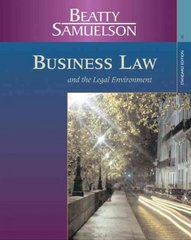Question
CH 20 & 21 comprise Part IV of the text: The World Economy. These chapters provide an opportunity to reflect on the definition of economics
CH 20 & 21 comprise Part IV of the text: The World Economy. These chapters provide an opportunity to reflect on the definition of economics introduced at the outset: economics is the study of how individuals and societies choose to use the scarce resources that nature and previous generations have provided.
If you have ever had the chance to travel in a "third" world country, the idea of choice may seem far-fetched. It also puts into perspective our own individual "struggles" with our personal financial challenges when we consider the stark reality of extreme poverty that millions of people face every day. Almost half the world, over 3 billion people - live on less than $2.50 a day. What would it look like if a significant number of these countries developed market economies and competed for resources we need to sustain our way of life? What responsibility do affluent nations (and individuals) have to help relieve the effects of extreme poverty in other countries?
Atlas of Population and Environment, American Association for the Advancement of Science:
http://statisticstimes.com/economy/countries-by-gdp-capita.php
Is perpetual growth sustainable? Steady State Economics:
http://steadystate.org/discover/definition/
Step by Step Solution
There are 3 Steps involved in it
Step: 1

Get Instant Access to Expert-Tailored Solutions
See step-by-step solutions with expert insights and AI powered tools for academic success
Step: 2

Step: 3

Ace Your Homework with AI
Get the answers you need in no time with our AI-driven, step-by-step assistance
Get Started


